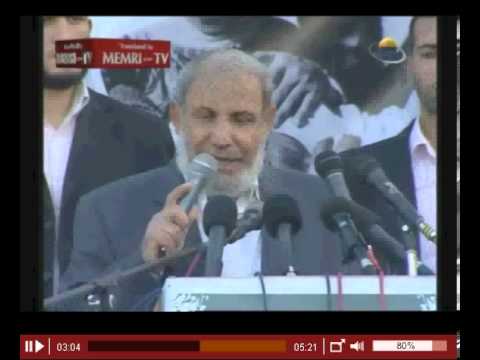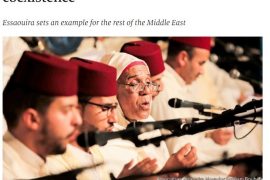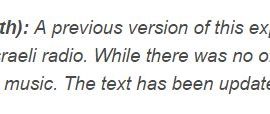Sometimes when reading the British media’s coverage of the Middle East, it seems as if some ‘professional’ reporters either have little expertise on the issues they’re writing about or that their employer lacks such high-tech, super-sophisticated research tools as, say, Google.
The Economist’s recent article on Hamas’s continuing isolation (Lonely Hamas, Sept. 7), is a case in point.
First, in fairness, the report does paint a largely accurate picture of the pressure being placed on the Islamist group by Egypt’s new regime:
THE Gaza Strip, an enclave tucked between Egypt and Israel that is still ruled by Hamas, a branch of the Muslim Brotherhood, is once again caged in. Egypt’s ruling generals, fearful that what they see as an Islamist tumour on their north-eastern flank might grow back into a Brotherhood cancer, want to contain it, if not cut it out. So they have sent bulldozers to demolish the houses along the border with Gaza that covered the tunnels providing Gaza’s 1.8m people with half their basic needs and most of their fuel and building material.
Of some 300 tunnels that operated before Egypt’s army overthrew Muhammad Morsi, the Muslim Brother who had been president for a year, only ten are said now to function.
Later, there’s also this fair assessment of why the ‘Zionist enemy’ (at least temporarily) no longer seems like Hamas’s greatest threat:
If it is to survive as Gaza’s ruler, Hamas will have to rely on its old foe, Israel. While Egypt has choked off access to Gaza, Israel has loosened it, with 400 lorries recently entering the strip from Israel via the Kerem Shalom crossing in a single day, the liveliest such traffic for many years. “If they increase demand, we’re ready to step up,” says an Israeli military spokeswoman.
At Friday prayers, some Hamas preachers curse Egypt more than Israel.
Good so far. However, then, in the final paragraph, the author of the unsigned article attempts to provide readers with some context on the enmity between Israel and Hamas, and writes the following:
Yet Israelis still loathe Hamas, which carried out scores of suicide-bombings against Israelis in the early 2000s. Hamas, meanwhile, reviles Israel for its assaults on Gaza and its leaders.
That’s why Hamas hates Israel?!
Well, for starters, Hamas’s obsessive hatred, which manifests itself in explicit calls by their leaders to commit genocide against the Jews, likely has something to do with their founding charter, published in 1988. The document cites the wisdom of the ‘Protocols of the Elders of Zion‘ to “prove” that Jews are trying to take over the world, and asserts its theological commitment to destroying the Jewish state – regardless of where its borders are drawn – through a long-term strategy of violent jihad.
Here are a few excerpts from their charter:
Israel will exist and will continue to exist until Islam will obliterate it, just as it obliterated others before it.
There is no solution for the Palestinian question except through Jihad. Initiatives, proposals and international conferences are all a waste of time and vain endeavors.
After Palestine, the Zionists aspire to expand from the Nile to the Euphrates. When they will have digested the region they overtook, they will aspire to further expansion, and so on. Their plan is embodied in the “Protocols of the Elders of Zion”, and their present conduct is the best proof of what we are saying.”
The Day of Judgement will not come about until Moslems fight the Jews (killing the Jews), when the Jew will hide behind stones and trees. The stones and trees will say O Moslems, O Abdulla, there is a Jew behind me, come and kill him. Only the Gharkad tree, would not do that because it is one of the trees of the Jews.
Hamas rocket attacks and suicide bombings are merely the natural product of their eliminationist anti-Zionist, antisemitic ideology.
Finally, it should be noted that this blog often cites political, historical and geographical facts about the Mid-East that should be obvious to even the casual observer, and the passage cited above in The Economist demonstrates the necessity of continuing to provide such basic information which, for some reason, often eludes ‘professionals’ tasked with contextualizing events in the region.





